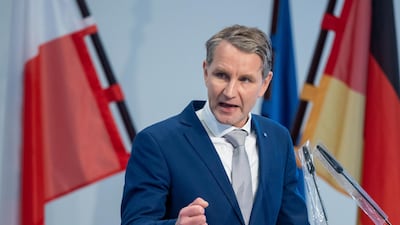Germany's domestic intelligence agency plans to put the Alternative for Germany (AfD) political party under surveillance amid fears that its most radical elements have extended their influence.
If confirmed, it would allow the Federal Office for the Protection of the Constitution (BfV) to observe members of the AfD, wiretap their conversations and use informers in the party, Frankfurter Allgemeine Zeitung reported. Officially it would mean the official opposition party in Germany's parliament being declared a suspected case, meaning its aims are incompatible with the country's democratic principles set out in the constitution.
Thomas Haldenwang, head of the BfV, said in January 2019 that his agency would investigate whether the entirety of the party should be placed under surveillance and it was given two years to do so.
The most radical faction of the party, known as The Wing, has been watched since last year after it was declared a right-wing extremist organisation.
While The Wing – which had about 7,000 members – has since been dissolved, many of those associated with it are still active in the party.
It was founded by Bjorn Hocke, the leader of the party in the state of Thuringia, who has criticised Germany’s commemoration of its Holocaust crimes, saying "these stupid politics of coming to grips with the past cripple us”.
He also called for a “180-degree reversal on the politics of remembrance”.
The party’s homeland is in eastern Germany and last year it was put under surveillance in the states of Thuringia and Brandenburg over its suspected right-wing extremism.
In 2017 it won 94 seats in the German parliament and became the country's third largest party on an anti-immigration and anti-EU platform. But while it was polling at about 15 per cent in 2019, its support recently dropped by about 5 per cent.
AfD has been under pressure in the past year to rid itself of its extremist elements.
On Monday it declared that people can be German citizens “regardless of their ethnocultural background”, and said it accepted that those who had only recently gained citizenship had the same rights as families who have lived in Germany for hundreds of years.
However, it also said that preserving the traditions and language of Germany were legitimate political goals and maintained it continues to believe in strict citizenship conditions and opposition to mass immigration.


